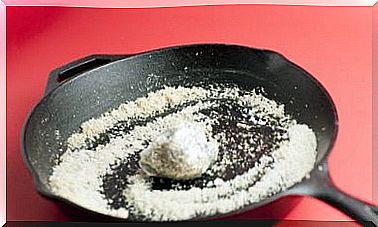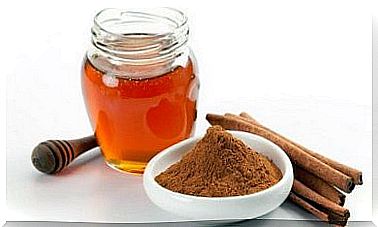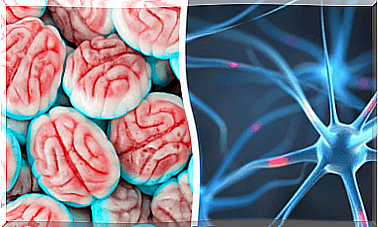Diet And Polycystic Ovary Syndrome
Eating a low-carbohydrate diet may be beneficial for women with polycystic ovary syndrome. Why ? Here are more details.

Polycystic ovary syndrome is the most common cause of infertility in women. It is estimated that one in ten women of childbearing age suffers from it. It is therefore essential to take care of the diet during polycystic ovary syndrome. Because, in general, patients tend to develop insulin resistance.
Poor management of this pathology can lead to more or less long-term complications, especially of a metabolic nature. Food can then be decisive in the prognosis of the course of the disease.
Do you suffer from this disease? Do you want to know how to improve your diet? Although it is fundamental to consult a nutritionist, today we also want to share some general recommendations on this subject. Take note !
Diet and polycystic ovary syndrome
Polycystic ovary syndrome (PCOS) is a common condition caused by an imbalance in reproductive hormones. This hormonal imbalance then generates problems in the ovaries.
The ovaries are responsible for producing eggs that are released each month as part of a healthy menstrual cycle. If a woman has this syndrome, the egg may not develop or be released during ovulation as it should.
PCOS can cause amenorrhea or irregular menstrual periods. Irregular periods can in turn cause infertility or the development of cysts in the ovaries.

What are the causes ?
The exact cause of PCOS is not well understood. Most experts consider several factors, including genetic factors, to be possible causes. Here are some of the most recognized causes.
High levels of androgens
Androgens are sometimes called “male hormones”, although all women produce small amounts of androgens. Women with PCOS therefore have more androgens than normal.
This can then prevent an egg from being released from an ovary during each menstrual cycle and can lead to excess hair growth and acne.
Elevated insulin levels
Insulin resistance occurs when cells do not respond normally to this hormone. As a result, the insulin levels in the blood are higher than normal.
Many women with polycystic ovary syndrome have insulin resistance. Especially those who are overweight or obese. This is what research published in the journal CES Medicine points out. Typically, these patients have unhealthy eating habits, do not engage in physical activity, or have a history of diabetes. Over time, insulin resistance can trigger type 2 diabetes.
Dietary treatment of polycystic ovary syndrome
Diet can be a very important factor in controlling the symptoms of SPOK. As we have stated before, women who suffer from obesity are more likely to develop it. Maintaining an adequate weight is therefore a protective factor.
Indeed, a weight loss of 5% improves problems such as insulin resistance, high androgen levels as well as reproductive system dysfunctions.
A study published in the Journal of the Academy of Nutrition and Dietetics , on Diet and Polycystic Ovary Syndrome, advises overweight women to lose weight to reduce the severity of the disease.
This aspect is more important than the composition of the food itself, provided that it is always healthy. However, it appears that a low-carb diet may provide greater benefits in terms of weight loss and blood sugar control.
But it’s not just overweight women who need to be careful about their diet. This is because some women of normal weight with PCOS also have higher blood insulin levels than women who do not have the syndrome. This is why everyone must be attentive to the glycemic index of foods.

Therefore, a low glycemic index diet might be a suitable approach. In other words, without sweets or sugar, and low in cereals, bread and tubers. To replace these foods, it is advisable to favor the following:
- Fruits and vegetables.
- Dried fruits and seeds.
- Legumes.
- Dairy products and eggs.
- Lean meats and fish.
Moreover, it was shown in a paper published in the journal Medical Hypotheses that intermittent fasting reduces resistance to insulin, helps relieve other symptoms of SPOK and improve hormonal levels.
Vitamin supplements
Vitamin supplements may improve the symptoms of this disease.
Inositol
Women with SPOK often have a deficiency of an enzyme called epimerase, which is necessary to have correct levels of a component called D-Chiro inositol. Since this deficiency raises the values of glucose and insulin in the blood, a good alternative is supplementation with D-Chiro Inositol.
The research published in the journal Gynecological Endocrinology have shown its effectiveness in restoring ovulatory cycle, improve insulin resistance, reduce acne and hirsutism as well as total cholesterol and triglycerides.
Folic acid
It can help treat ovulatory infertility. Vegetables such as green leaves, fruits and legumes are rich in this vitamin.
Vitamin D
A vitamin D deficiency is associated with increased insulin resistance and an increased weight.
Adequate nutrition and regular exercise are essential for the treatment of SPOK. As well as pharmacological or hormonal treatment, especially for women who want to be a mother.
Improving diet to treat polycystic ovary syndrome
Although the causes are unknown, we know that polycystic ovary syndrome reacts very favorably to a dietary approach. This is why it is essential to increase the consumption of certain foods and to reduce the intake of carbohydrates.









